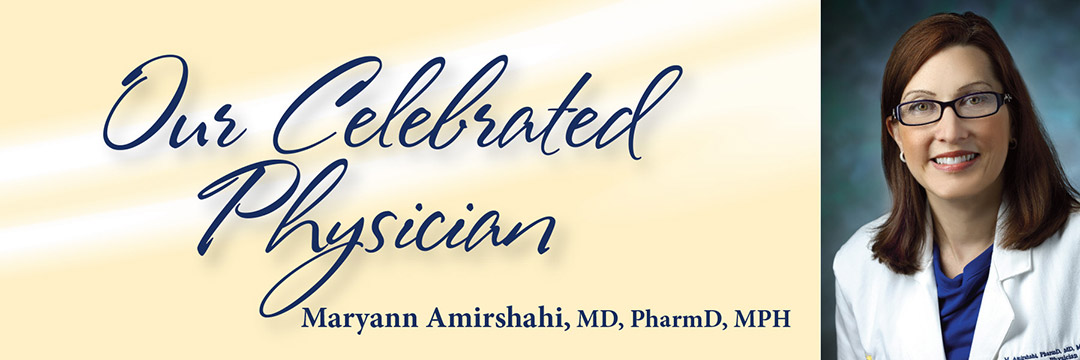The bustling environment of Emergency Medicine may seem worlds away from the relatively benign atmosphere of the corner pharmacy. But even after Maryann Amirshahi, MD, PharmD, MPH, had begun her career as a pharmacist, she sought opportunities to bring her knowledge of medications and drug therapies to other aspects of medicine.
After several years of working in commercial and hospital pharmacies, Dr. Amirshahi earned her medical degree at Temple University, followed by an emergency residency at the Hospital of the University of Pennsylvania.
Why Medical Toxicology
“I was always interested in toxicology, overdoses and similar cases,” explains the New Jersey native. “During my ER rotations, I saw numerous opportunities where my pharmacy background could help ensure patients received proper medications and dosages, for both their immediate and pre-existing conditions.”
A medical toxicology fellowship at The George Washington University brought Dr. Amirshahi to the nation’s capital, which she followed that fellowship with a clinical pharmacology fellowship at Children’s National Health System. Ever the learner, Dr. Amirshahi also received a Masters of Public Health degree, focused on environmental and occupational health from GWU. She is board certified in emergency medicine, medical toxicology, addiction medicine and clinical pharmacology.
As an attending emergency medicine physician for both MedStar Washington Hospital Center and Children’s, Dr. Amirshahi often consults with other physicians on cases involving dosages and related issues. A frequent challenge, she says, is a lack of available information on what other prescription medications patients may be taking.
“Even the patients don’t always know exactly what they’ve been prescribed,” she says. And given the growing awareness of opioid addiction across the country, Dr. Amirishi says it’s critical that emergency medicine prescriptions don’t inadvertently start a patient on the path to addiction.
“If there’s a shortage of certain drugs, a physician may have to use a less-familiar medication that may interact differently,” she adds.
Involvement in the Medical Community
In addition to serving as an assistant professor of emergency medicine at the Georgetown University School of Medicine, Dr. Amirshahi is a toxicology consultant for the Mid-Atlantic Center for Children’s Health and the Environment, and for the National Capital Poison Center. She’s involved in local and national research focusing on medication safety, medical toxicology and prescription drug abuse.
“It’s rewarding to be making a difference on a large scale,” she says. “Along with developing protocols for safe opioid use, we’re also helping physicians implement new and alternative therapies.”
Life Outside the Hospital
With a family that includes a husband who is also a physician, two young children and five pets, one might assume that quiet time is a rare commodity in Dr. Amirshahi’s life. Though yoga and pilates do help her decompress, she rarely hesitates to indulge her longtime love of heavy metal music.
That includes attending a performance by Slayer, her favorite metal band, even though she was eight months pregnant at the time.
Otherwise, Dr. Amirshahi says with a laugh, “my time in the mosh pits is over.”

